Churchill v. Herr von Wessel debate
Debate Questions on Pub Date:
1)You were First Lord of the Admiralty. Could you have sent British war ships to escort the Lusitania safely into port in Queenstown on May 7, 1915?
Winston Churchill: I was in France at the time of Lusitania‘s sinking, engaged in planning for the Dardanelles campaign. There was a shortage of available destroyers at the time. HMS Juno, which had been originally designated to escort the Lusitania was recalled, because as an old cruiser of obsolete design, it would have been too slow and vulnerable to U-boat attack, a sitting duck. It was thought safer for the Lusitania to proceed on its own and make her way as rapidly as possible to Liverpool.
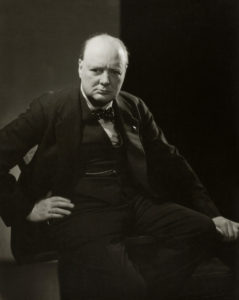
Portrait of Churchill
Herr von Wessel, Economic Attache at the German Embassy: Our information shows that at least four (4) British torpedo boat destroyers (the Lucifer, Legion, Linnet, and Laverock) were sitting idly by in a harbor in Wales. They could have provided the necessary escort.

Herr von Wessel
Winston Churchill: Those destroyers were being kept in reserve, to meet other threats. They were not available for escort duty. Also, it was thought unthinkable for a ship as fast as the Lusitania to be attacked, let alone sunk, so actions to protect her were not deemed necessary. If Captain Turner had kept his speed up and zigzagged, as he was directed to do by the Admiralty, the attack would never have taken place.
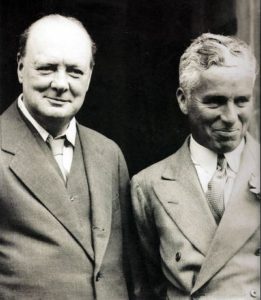
Churchill with Charlie Chaplin
Herr von Wessel, Economic Attache at the German Embassy: It is well known that Mr. Churchill wanted the Lusitania to be attacked, so that the United States could be provoked to join the war on the side of the Allies. Mr. Churchill sent a letter to Walter Runciman, the president of Britain’s Board of Trade. In this letter, he wrote the following and I quote:
It is most important to attract neutral shipping to our shores in the hope especially of embroiling the United States with Germany . . . . For our part we want the traffic — the more the better; and if some of it gets into trouble, better still.
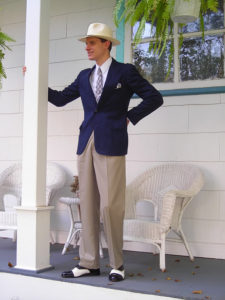
Herr von Wessel in full color
Winston Churchill: The Lusitania was a British ship, not “neutral shipping.” It was a symbol of national prestige. We, of course, at the Admiralty took special precautions to make ensure her safety, including warning the Lusitania about recent U-boat activity and instructing her captain to maintain his speed and to zigzag.
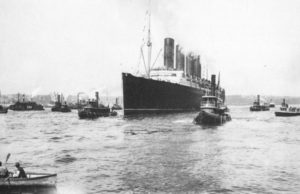
The Lusitania
It would not, in any case, have been to Britain’s advantage to drag the United States into the war at that time. In 1915, the United States had not yet mobilized for war, and Britain was dependent on the US to supply the British Expeditionary Force in France. If the US had declared war right after the Lusitania’s sinking, the supplies that had once been going to Britain would have stayed in the US, leaving the British Army without sufficient ammunition to fight the Germans on the Western Front.
2)Do you know anything about the mysterious second explosion that sank the ship?
Winston Churchill: It was certainly not munitions. Contrary to German reports, the ship was not carrying any guns or any high explosives whatsoever. I am aware that three German stowaways were apprehended after the liner sailed and that they were being held aboard the Lusitania in the ship’s brig at the time she was sunk. Some have speculated that they were saboteurs who planned on using chemical fuses to sink the ship. No evidence of such a plot has ever been uncovered. Of course, whatever evidence may have been provided by the stowaways themselves has been lost forever. Dead men tell no tales.
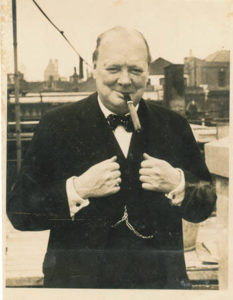
Churchill with cigar
Herr von Wessel, Economic Attache at the German Embassy: The ship’s manifests clearly show that the Lusitania was carrying munitions, including millions of rounds of bullets destined for the trenches on the Western Front to kill German soldiers. What’s more, there were literally tons and tons of cargo stored in the Lusitania‘s unrefrigerated cargo holds that were dubiously marked “cheese”, “butter” and “oysters.” Really, this was a cover for the ship carrying significant amounts of high explosives in the holds – shells, powder, gun cotton – that were set off by the torpedo and the inflow of water. That’s what sank the ship.
Winston Churchill: Poppycock! The Lusitania was not built like a warship. It was a luxury liner. Even a single torpedo could easily set off a chain reaction of catastrophe that would cause additional, subsequent explosions inside the ship due to the ship’s boilers and turbines exploding. It was the German torpedo that caused the ship to sink, not a mythical load of munitions.
3)Did Lawrence of Arabia have anything to do with the sinking of the Lusitania?
Winston Churchill: How could T.E. Lawrence have anything to do with it? He was in Cairo, Egypt at the time, working for the Arab Bureau, drawing up maps and interviewing prisoners. He was not involved in naval affairs at all.
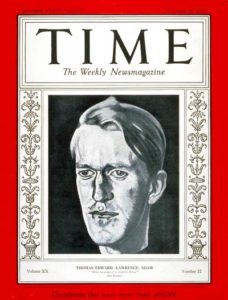
T.E. Lawrence on the cover of Time magazine
Herr von Wessel, Economic Attache at the German Embassy: T.E. Lawrence was involved in all sorts of dangerous intrigues and plots. Just before the Great War, he and Leonard Wooley were sent to Palestine on a so-called archaeological expedition, which was simply a ruse to provide cover for a British Army officer, a Lieutenant-Colonel Newcombe, to perform military surveillance against the Ottoman Turks. Our information also shows that Lawrence was part of another plot, along with Leonard Wooley and Sir Adolphus Ware, to traffic in military secrets. As part of that plot, Adolphus Ware sent a decoy package to the daughter of an American business tycoon, Winthrop Benley, just before he and his family sailed on the Lusitania on its final voyage. This was to throw the Kaiser’s agents off the scent of a real delivery of military secrets by Ware’s son to Lawrence. The decoy package attracted the Kaiser’s agents to sail aboard the Lusitania, placing everyone aboard, including women and children in the greatest danger.
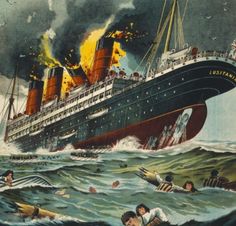
Artist’s depiction of the sinking Lusitania
Winston Churchill: What really put the passengers of the Lusitania “in the greatest danger,” as you put it, was the Germans engaging in unrestricted submarine warfare, without first allowing the passengers, including women, children, and infants, the opportunity to take to the ship’s lifeboats. The torpedoing of the Lusitania without warning by a German U-Boat will forever be regarded as a barbaric act by a lawless nation.
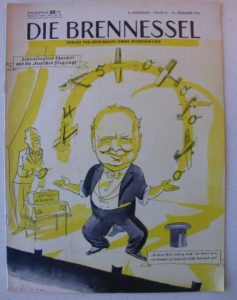
Churchill on the cover of Die Brennessel
4)There were also rumors that you were responsible for the recent arson aboard the Morro Castle? Not that you were there personally but that you were involved in a plot?
Winston Churchill: That is quite preposterous. I have heard no such rumors and know of no such plot. Aside from reading about the fire aboard the Morro Castle in the London papers, I know nothing about this tragic incident that took place entirely in American waters.
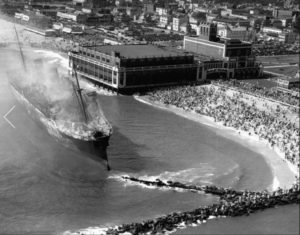
The S.S. Morro Castle on fire.
Herr von Wessel, Economic Attache at the German Embassy: The evidence is indisputable that the ship was the victim of an arson attack. The fire burned much too hot and spread way too fast for an ordinary shipboard fire.
Winston Churchill: Even if that is so, I had absolutely nothing to do with anyone aboard that ship setting fire to it.
Herr von Wessel, Economic Attache at the German Embassy: Ah, but you were well acquainted with one of the passengers aboard the ship at the time of the fire, a Mrs. Byrne, who has since become Lady Ware, the new wife of Colonel Sir Edward Ware.
Winston Churchill. Lady Ware, an arsonist? Are you joking?
Herr von Wessel, Economic Attache at the German Embassy: We have evidence that she met with the arsonist before the ship was set afire.
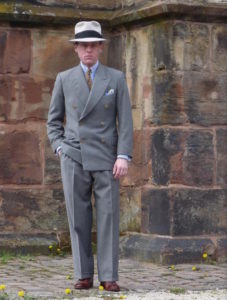
Herr von Wessel dressed in another outfit
Winston Churchill: You claim to have evidence to back up a great deal of fantastic claims. I have gathered from newspaper reports that the alleged arsonist may have been a member of the Morro Castle‘s crew. Any number of passengers may have had contact with him before he undertook his nefarious deed. That does not make them accomplices before the fact.
5)Do you know Colonel Sir Edward Ware? His new wife, Dora, Lady Ware, was a passenger aboard the Morro Castle when she was known as Mrs. Byrne. She escaped but her first husband died on the ship. Did you help the couple arrange the murder so they could get married?
Winston Churchill: I am well acquainted with Colonel Sir Edward Ware, a man of sterling character. As is his wife, Lady Ware. They would no sooner murder someone than would the King and Queen of England. I understand that Lady Ware became widowed when her first husband, Mr. Byrne, died in the tragic fire aboard the Morro Castle, as did a great number of other passengers of that ill-fated vessel. No foul play was involved in his passing.
Herr von Wessel, Economic Attache at the German Embassy: But you acknowledge that the ship may have been set afire by an arsonist.
Winston Churchill: May have been, perhaps by a disgruntled crew member. Certainly not by Lady Ware.
Herr von Wessel, Economic Attache at the German Embassy: Also, you must have been aware that the marriage of the Byrnes was, as the Americans say, “on the rocks” and that Mrs. Byrne was having an affair with Colonel Ware at the time.
Winston Churchill: I do not spend my time reading the society columns, Herr von Wessel, and I certainly would not believe everything that is printed there. Again, the former Mrs. Byrne, now Lady Ware, is of impeccable character. That she would engage in a a murder-arson plot such as you suggest is preposterous.
6)Did the new Chancellor of Germany, Adolf Hitler, have anything to do with the sinking of the Morro Castle? Why would he be interested?
Winston Churchill: I find it highly unlikely that the Chancellor of Germany would have anything to do with the sinking of a cruise ship off the coast of New Jersey. Herr Hitler does freely involve himself in intrigues and plots, as you can see from recent events, such as the purge of the SA in Germany and the death of Rohm, and the assassination of Prime Minister Dollfuss in Austria by Austrian Nazis. The German Nazi leader is also rearming in violation of the Versailles Treaty, including creating a German air force. But all these intrigues and plots have to do with Europe, not America.
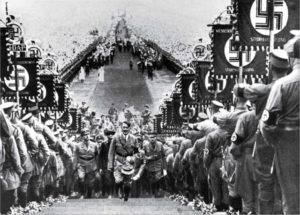
Hitler at a party day rally in Nuremberg, 1934
Herr von Wessel, Economic Attache at the German Embassy: What proof do you have of rearmament? Of an air force? The Fuhrer is a man of peace. He has no desire to violate the terms of the Versailles Treaty.
But I must agree with Mr. Churchill that the Fuhrer had absolutely nothing to do with the fire aboard the Morro Castle.
7)Have you ever heard about the Lawrence maps? Is it true they are the real cause of the sinking of both ships?
Winston Churchill: I am aware that Lawrence drew military maps for British military intelligence during the Great War, which maps are currently in the secure possession of the British War Department. Again, your question makes no sense. The Lusitania was sunk by a German torpedo. The Morro Castle caught fire at sea and burned. Maps drawn by Lawrence during the Great War have nothing to do with either of these events.

Portrait of T.E. Lawrence by Lieutenant Sims, bromide print, circa 1934
Herr von Wessel, Economic Attache at the German Embassy: Lawrence was and remains a great intriguer, and Churchill well knows that Lawrence did not just draw maps for British military intelligence. Germany knows the truth about Lawrence and his role in the sinking of the Lusitania and the arson fire of the Morro Castle. Germany will deal with Lawrence – and his maps – accordingly.
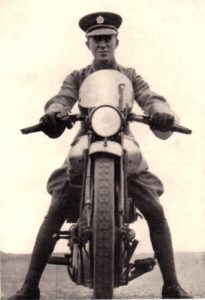
T.E. Lawrence
Winston Churchill: Is that a threat, Herr von Wessel?
Herr von Wessel, Economic Attache at the German Embassy: More like a warning, Mr. Churchill. Germany knows who are its friends and who are its enemies. Prime Minister Baldwin may not know what’s what, but the Fuhrer does, and he will not be long in taking action for the good of Germany.
Winston Churchill: We in Britain will be keeping a sharp eye out for the German Chancellor’s next move. Out Prime Minister may not have a clue, but there are others, like myself, who are not so easily fooled.
That is the final word of the debate. If you want to read more about it check out the Salisbury Plot by Dora Benley on Amazon today.